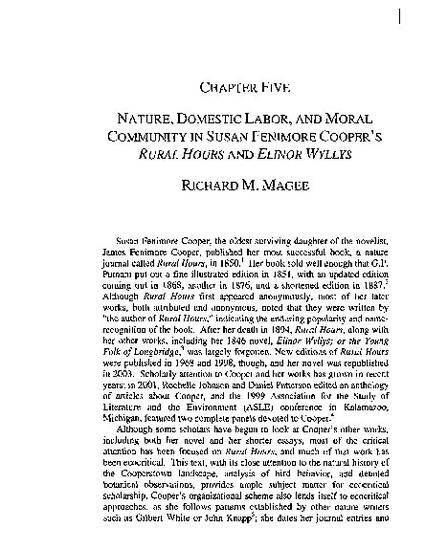
Cooper's argument for a domestic ideal situated within a rural setting reinforces the importance of community connections through a shared sense of morality, as well as understanding of the natural world. Community alone—the human connections—never seems to be enough in Cooper's formulation, but must always exist with an awareness of the world outside the narrow confines of one's own domestic sphere. Concern for one's fellow-beings necessitates a concern for the world in which these beings live, and Cooper understands that when any bonds are broken—such as the bonds that connect us to the natural world—other bonds are threatened. Thus, when we begin to care more for our environment, we awaken within ourselves the possibility of caring for the rest of our human community. At a time when environmentalists and other activists for social justice are urging us to think globally and act locally, it is perhaps a good moment to consider how Cooper, in her own subtle way, spoke of the power of the local and domestic to create a more just society.
Available at: http://works.bepress.com/richard_magee/3/

Originally published:
Magee, Richard M. "Nature, Domestic Labor, and Moral Community in the Susan Fenimore Cooper's Rural Hours and Elinor Wyllys." Women and Labor: The Labors of Self-Fashioning. Ed. Christine Leiren Mower and Susanne Weil. Newcastle: Cambridge Scholars Publishing, 2011. Print.
ISBN 9781443824224.